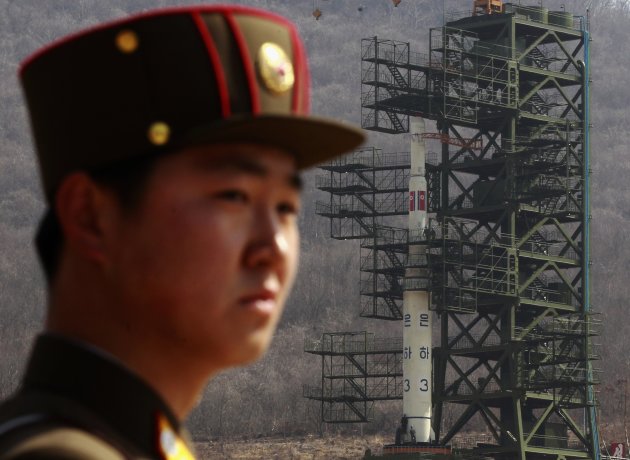North Korea has launched a long-range rocket despite international calls to abandon the effort. In defiance of UN sanctions threats over what Pyongyang's critics have condemned as a disguised ballistic missile test, the secretive regime had been saying it would launch the rocket.
North Korea is in clear violation of UN Security Council Resolutions 1718 and 1874, which explicitly demanded North Korea not to use or conduct any launch using ballistic missile technology and the suspension of its ballistic missile program. Just after the North's previous rocket launch attempt in April the UN Security Council added a so-called "trigger" clause to a presidential statement, reflecting the Security Council's determination to take action in the event of a further missile launch or nuclear test by North Korea. Therefore, additional sanctions on North Korea will be implemented according to the "trigger" clause.
North Korea has insisted the launch is simply part of an effort to develop a peaceful space program and place a satellite into orbit. But the U.S. and other key allies, including even China and Russia, believe it is a thinly disguised attempt to test an intercontinental ballistic missile. With further development, such technology could be used to develop a missile that could one day reach the United States.
The rocket launch is timely as many notable events overlap this month. December 17th marks the one year anniversary of Kim Jong-il's death. And it's believed that Kim Jong-un is under pressure to show the world his intent on continuing the Military First policy and demonstrate a show of strength.
However, at what cost? North Korea had spent a total of US$1.34 billion on rocket launches since the Kim Jong-un regime took power this in April of this year. This is enough money to buy a year's worth of food for North Korea. The North Korean food demand for one year is equivalent to 5.3 million tons of corn, which is valued at US$1.5 billion according to international market rates. By this standard, the total of US$1.34 billion would be nearly equal to the annual cost of food and enough to cover the shortfall for four to five years. I hope North Korea will put their toward solving its peoples’ food shortage.

No comments:
Post a Comment